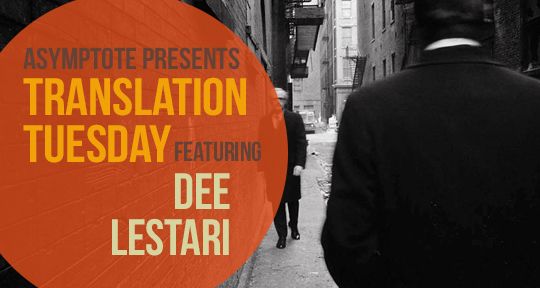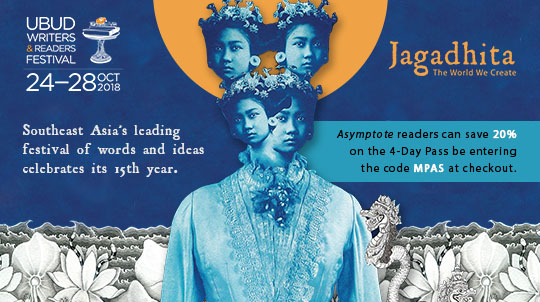In partnership with the Ubud Writers and Readers Festival, we’re very proud to present A World with a Thousand Doors, a series showcasing writing from Indonesia hitherto unpublished in English—including some from authors featured in this year’s festival.
Curating this series had its challenges: it was impossible to do full justice to Indonesia’s diversity through a selection of only eight writers’ works. But each of these pieces excites us and we hope with all our hearts that this series will not only highlight just a few of the many talents on today’s Indonesian literary scene for our readers, but also provide a critical intervention in discussions of how to best disseminate Indonesian literature in the world, which tend to advocate reliance on government-sponsored initiatives and large institutions.
Although assistance from these quarters is undoubtedly invaluable, even the most wonderful of writers may fall through the cracks and remain untranslated. The editors of this Translation Tuesday series, Norman Erikson Pasaribu and Tiffany Tsao, sincerely hope that A World with a Thousand Doors will encourage writers and translators of Indonesian literature to consider pairing up directly and submitting widely to literary journals and publishers, of which Asymptote is only one. The ‘thousand doors’ of the series’ title is a metaphor for the immense diversity of Indonesian writing. But it could also stand for the thousand routes that Indonesian-language writers and translators might take to reach the wider world.
Without further ado, it is our pleasure to kick off our series with this short story by beloved author and Ubud Writers and Readers Festival guest Dee Lestari.
There should be a wise saying that goes something like this: Never take two if you only want one. One brings completion—but two, oblivion. It may sound a little strange, but it’s the truth. Such sayings aren’t mere literary cotton candy—all fluff, no stuff. It takes bitter experience to formulate each one. It takes a person to practically perish paddling upstream before they can appreciate the serene swim to shore, as the old adage goes. Or to draw on yet another maxim—it takes someone to fall flat on her face, then have the ladder land on her as well. It takes an entire tureen of milk to prove a drop of ink will spoil the whole lot. In this case, it took a Hera who was searching for a Herman.









